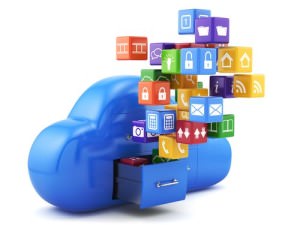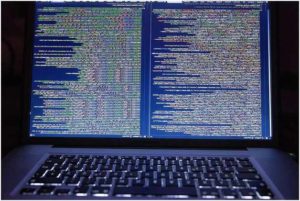How Data Science and AI are Empowering Educators and Transforming the Learning Experience
A classroom where students receive personalized attention tailored to their unique learning style and pace. Teachers are equipped with tools that enable them to predict and prevent potential issues, ensuring each child’s academic success. This isn’t just a futuristic fantasy – it’s the reality that data science and AI are creating in education today.
Let’s explore the fascinating role of data science and AI in education and how these technologies are transforming the learning experience for students and educators alike. We’ll dive into real-life examples, showcasing the power of data-driven insights and AI-powered tools in the modern classroom.

The Dynamic Duo: Data Science and AI in Education
The marriage of data science and AI is revolutionizing the world of education. By harnessing the power of data, educators can now make informed decisions, optimize curriculums, and tailor teaching methods to each student’s needs. Meanwhile, AI enables innovative learning approaches, fosters student engagement, and provides personalized assistance. Together, these technologies are redefining the educational landscape.
There are all kinds of ways to learn about AI. When it comes to data science, modern educational opportunities like a Data Science Bootcamp allow people to take their first steps into learning data science in ways that fit into their schedules.
Personalized Learning Experiences
Imagine a classroom where each student receives a unique learning experience crafted to cater to their strengths and weaknesses. With data science and AI, this dream is becoming a reality. By analyzing data points such as test scores, attendance, and student feedback, educators can create custom learning plans tailored to each student’s needs. This not only enhances knowledge retention but also keeps students engaged and motivated in their academic journey.
Real-Life Example: Take the story of Amy Dunlap, an educator at Michigan Connections Academy, who utilized data-driven insights to personalize learning plans for her K-12 students. She found that the visualization of data on her learning management system’s dashboard allowed her to quickly understand and adjust teaching methods, ultimately leading to better student outcomes. You can discover more about Amy’s experience and other educators’ success in personalizing learning here.
Predictive Analytics for Student Success
Predictive analytics is one of the most powerful applications of data science in education. By analyzing historical data, educators can identify patterns and trends that may indicate a student’s likelihood of success, allowing them to take preemptive action.
Real-Life Example: Consider the case of Arijit Sengupta, founder of Aible, an AI company based in San Francisco. In a recent interview, Sengupta revealed that colleges and universities are increasingly adopting AI to improve key performance indicators, catching up to industries like banking and healthcare. With 5-10 higher education clients already benefiting from AI-driven insights, they’re making progress in areas like increasing applicant yield, reducing first-to-second-year attrition, optimizing financial aid, and enhancing alum donor solicitation.
AI-Powered Teaching Assistants
In today’s increasingly digital world, AI-powered teaching assistants are becoming an invaluable resource for both students and educators. From providing instant feedback on assignments to answering questions and clarifying concepts, these intelligent chatbots offer round-the-clock support, ensuring that no student is left behind.
Real-Life Example: Look no further than the renowned non-profit organization Khan Academy, on a mission to provide a free, world-class education for anyone, anywhere. In response to the diverse needs of students and the challenges posed by the COVID-19 pandemic, Khan Academy developed an AI-powered virtual tutor and classroom assistant called Khanmigo, powered by GPT-4, the latest version of OpenAI’s language model. Early testing indicates that GPT-4 can help students better understand the relevance of their studies and even master specific points of computer programming. Explore how AI is officially entering the classroom with Khan Academy’s GPT-4 based assistant Khanmigo here.
AI-Assisted Instructional Design for Curriculum Development
Artificial intelligence is playing an increasingly significant role in shaping the future of instructional design and curriculum development. Educational institutions can make data-driven decisions about course offerings and program structures by utilizing AI tools to perform tasks such as needs assessments, consulting, analysis, and content gathering. As a result, they can better align their curricula with student performance, job market trends, and emerging technologies.
List of AI Tools for Instructional Designers
- ChatGPT – Assists with curriculum planning, consulting, and establishing project vision. AI Detector tools help detects content written by AI tools.
- DeepL Translation – Helps with translating course content for multilingual audiences.
- Jasper AI – Aids in content creation and curriculum development tasks.
- Quetext – Useful for checking plagiarism and ensuring originality in course materials.
- Dall-E 2 – Generates creative visuals and illustrations to support instructional materials.
- Midjourney – Facilitates project vision and user experience design.
Embracing the Future of Education with Data Science and AI
As we stand at the forefront of a new era in education, data science and AI are poised to transform the way we teach and learn. These cutting-edge technologies are breaking down barriers, fostering inclusion, and igniting a new wave of innovation within the classroom.
By offering personalized learning experiences, data science and AI are unlocking the potential of each individual student, enabling them to thrive academically and personally. Predictive analytics empower educators to proactively support students and address potential challenges, ensuring a higher likelihood of success.
The integration of AI-powered teaching assistants is revolutionizing the student-teacher dynamic, providing round-the-clock support and enhancing the learning experience. Meanwhile, AI-assisted instructional design and data-driven curriculum development are equipping educators with the tools necessary to create more effective, engaging, and relevant learning environments.
As we embrace these technological advancements, we not only elevate the classroom experience but also invest in the future success of our students and the global economy. The combination of data science and AI propels us towards unprecedented innovation and transformative learning experiences. These powerful technologies not only dismantle barriers but also empower learners from all walks of life to realize their fullest potential.
Picture a world where the confines of traditional classrooms no longer restrict learning, replaced by boundless digital spaces accessible to everyone. Visualize students across the globe, connecting and collaborating as they unravel the mysteries of the universe through the language of data. With data science and AI steering the way, this once far-fetched dream is rapidly becoming a tangible reality.
The time has come for ambitious visionaries to seize the opportunity to harness the might of data science and AI. By mastering these cutting-edge tools and techniques, you can open new doors of possibility, fostering a more inclusive, engaging, and inspiring learning environment for future generations.
The future of education is calling, and it’s time to answer. Embrace the game-changing potential of data science and AI and join the trailblazers who will redefine the learning experiences of tomorrow.
Author Bio: Anjani is a technical as well as creative content writer at Thinkful, a Chegg service. She is an outgoing person, and you will find her near books, arts and explore the miraculous world of technology. Connect with her on LinkedIn or Twitter.





